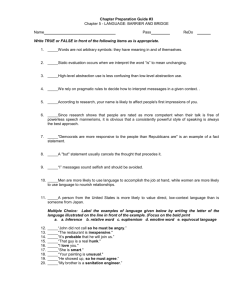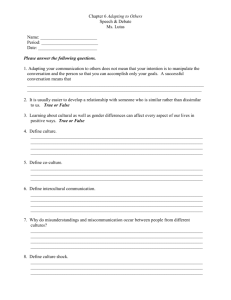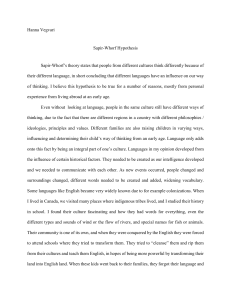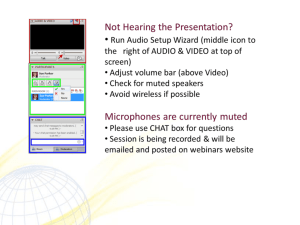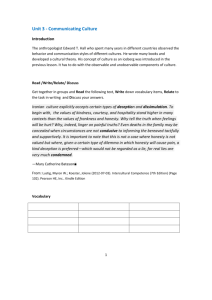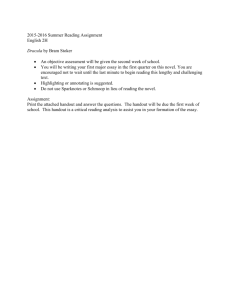Interpersonal Communication: Language Review
advertisement
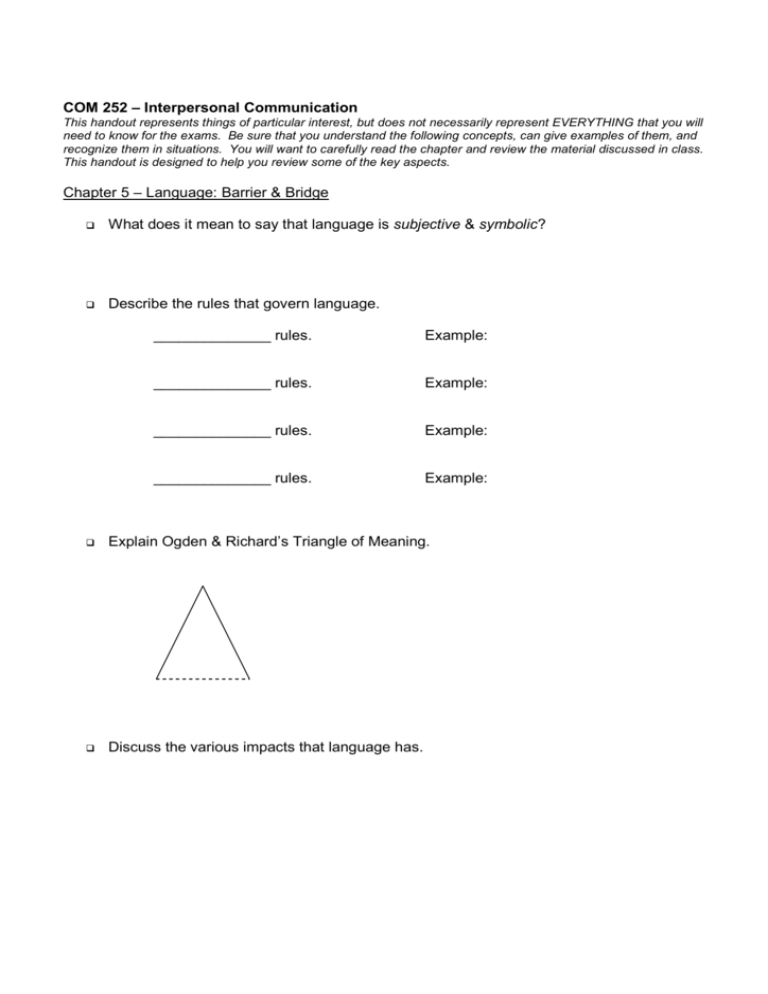
COM 252 – Interpersonal Communication This handout represents things of particular interest, but does not necessarily represent EVERYTHING that you will need to know for the exams. Be sure that you understand the following concepts, can give examples of them, and recognize them in situations. You will want to carefully read the chapter and review the material discussed in class. This handout is designed to help you review some of the key aspects. Chapter 5 – Language: Barrier & Bridge What does it mean to say that language is subjective & symbolic? Describe the rules that govern language. ______________ rules. Example: ______________ rules. Example: ______________ rules. Example: ______________ rules. Example: Explain Ogden & Richard’s Triangle of Meaning. Discuss the various impacts that language has. Explain the language of responsibility. “It” language – Example: “But” language – Example: Questions – Example: “I” & “you” language – Example(s): “We” language – Example: Describe the three forms of disruptive language. What is the relationship between language use and gender? What is the relationship between language use and culture? Key Terms Abstraction ladder Abstract language Ambiguous language Behavioral language “But” statements Connotation Convergence Denotation Divergence Emotive language Equivocal language Euphemism Factual statement High-context cultures “I” language Inferential statement “It” statement Linguistic relativism Low-context cultures Opinion statement Phonological rules Powerless speech mannerisms Pragmatic rules Relative language Sapir-Whorf hypothesis Semantic rules Static evaluation Syntactic rules “We” language “You” language
